This summer, I trusted in the U.S. State Department to decide where I would study abroad. It came down to Georgia and Kyrgyzstan — the 2023 Russian language sites for the Critical Language Scholarship (CLS), a fully-funded government scholarship that sends students in higher education to foreign countries to study languages critical for global dialogue.
When I received my placement email assigning me to Kyrgyzstan, I didn’t know how to feel — mostly a product of knowing next-to-nothing about the country. Georgia, nestled in the Caucuses, is the setting of famous literature such as a Hero of Our Time and a much more popular site for tourists andRussian learners alike. In turn, Kyrgyzstan is further flung in Central Asia, and as my experience has shown, when its name doesn’t just draw blank stares it is most often associated with Borat — although said protagonist actually hails from Kyrgyzstan’s northern neighbor, Kazakhstan.
But the unknown also carries a particular appeal.
Kyrgyzstan is well off the beaten path. Ideally, any study abroad experience shapes us into more adaptable, empathetic and thoughtful people.Why should these benefits not be magnified the more different and unfamiliar the culture? A previously nomadic horse culture (forced to settle into a collectivized agricultural society by the Soviet Union) whose country’s landscape is 92 percent mountains is a far cry from anywhere in the United States. So at the beginning of June, I set off on a five-flight, 40-hour journey to Bishkek — the capital of Kyrgyzstan and my home for the next two months.
There are certain challenges that present themselves when studying abroad somewhere few Americans have heard of. Some of these difficulties begin even before leaving. For example, calling your bank to explain that the Visa fee you are about to charge to your debit card that will be processed in Kyrgyzstan is not fraud. Then, still having to argue that your card shouldn’t be canceled five minutes after the charge goes through because the bank is wondering what is Kyrgyzstan? and why are they trying to steal your banking information? Everything I knew about Kyrgyzstan also came from information I could scrape together via Google, so it was hard to know what was ahead.
Academically, I knew about what to expect: several hours of intensive language classes a day hosted out of a local institution, excursions to local sites of interest and meetings with local language partners. This was my third time on this kind of State Department program. I participated twice in the Russian language sister program for high school students, National Security Language Initiative for Youth (NSLI-Y). I was selected to visit Moscow in summer 2020, but COVID-19 curtailed those plans, and I completed a virtual program instead. I was, however, able to spend eight months in Moldova from September 2021 to May 2022 in the NSLI-Y program.
As I arrived home, I was already looking fondly back on the experience, happy to have been challenged and content in my newfound appreciation and understanding of my own views and beliefs — now armed with plenty of new stories to tell.
More than anything, my experience in Moldova prepared me for Kyrgyzstan. Culture shock is relative to one’s own experiences. Most things pale in comparison to living in a country where few people speak English, and you speak neither of the local languages (at least at first). When you can’t even communicate enough to understand what convention or custom you’ve upset, every action you take could have you inadvertently stepping on an eggshell. Of course, sometimes not understanding may be better: being admonished that drinking cold water caused my tonsilitis after I came home from a Moldovan hospital was not advice I appreciated.
Nevertheless, I still laugh over my Russian teacher recounting the two scenarios in which someone would ask our class who our Russian teacher was: either because said questioner was envious of our top-tier instruction or because our subpar language skills would have brought shame upon him as a teacher. Based on that day, he said, it would definitely be the latter.
Furthermore, the geopolitical situation when I was in Moldova was incredibly tense — the full-scale invasion into Ukraine happened in February of that year. Despite this, the calmer geopolitical situation and the fact that I already knew Russian decently meant that my time in Kyrgyzstan was already off to a smoother start. And, just like people in the United States, locals in Kyrgyzstan frequently asked me, “Why Kyrgyzstan?” This question led to many interesting conversations as well as at least one marriage proposal (I collected four while I was there, though the seriousness of the proposals varied). No one ends up in Kyrgyzstan by accident, after all. It was a point of fascination for many Kyrgyz people that I would come so far to learn Russian.
The next question, naturally, tended to be about what I thought of Kyrgyzstan — which was an easy answer. Kyrgyzstan is beautiful.
Just riding around the cities in a taxi, I would catch a glimpse of the jagged, snow-capped peaks of the Ala-Too mountains from between trees and lose my breath. In the bustling markets, bags of colorful spices line the stalls. No matter where we went in the countryside, we would see herds of wild horses dotting the hillsides and goats and sheep wandering through fresh mountain streams. Outside of Bishkek, the stars at night were brighter and more numerous than I had ever seen, and at Issyk-Kul, the bright blue water extended almost forever until distant mountains poked through the hazy horizon.
And while everyone’s comfort varied, I had never felt safer being out at night than while in Bishkek — even five-year-olds are still at the park with their parents at 1 a.m. during the summer months, one of my first real culture shocks.
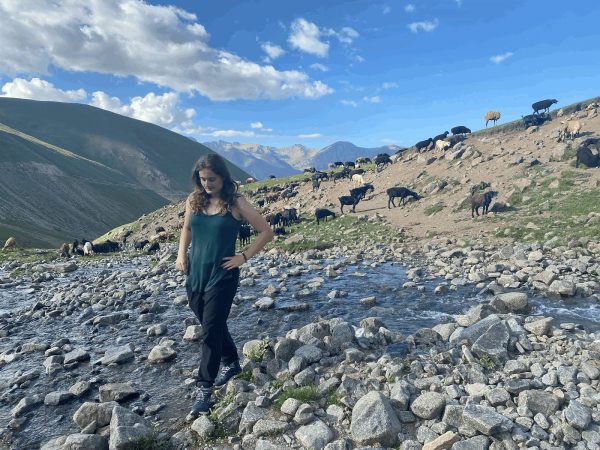
Of course, it was the people that elevated the experience most. Kyrgyz culture places great emphasis on hospitality — a tradition conserved from the nomadic era of the Kyrgyz people, wherein their only source of news from other tribes and groups was from guests who often had to travel through hostile conditions to reach their destinations. For example, the air is incredibly dry and hot in the summer, which triggered repeated, severe nosebleeds for me. Unfortunate as this was, it did provide me with an insight into true Kyrgyz hospitality, which is even extended to strangers. Early into my stay, when I was conveniently wearing a new white blouse, I got the first of these nosebleeds. A Kyrgyz security guard took pity on me, leaned over the dust on the sidewalk and graciously invited me into a municipal building, so I could wash my face off and walk the rest of the way home without looking like Carrie at prom.
An even greater insight into Kyrgyz culture came from living with a host family; mine was composed of a young married couple and their three boys, who welcomed me eagerly into their home. They took me on vacation to Issyk-Kul, fed me local foods such as the noodle dish laghman and fermented barley drink maksym and never hesitated to help me in any way.
The three-year-old particularly liked me, as he would often literally dance into my room, carrying handfuls of fruit as an offering. My host father eventually claimed me as his American-born daughter and cackled at my jokes, no matter how many times I told them. That I would (mostly) ironically call myself the prettier, funnier and smarter sister revealed an incomprehensible — yet hilarious — personal family dynamic found in my host parents. Likewise, it was just as shocking to their extended family that I was born when my mother was 36 — as my host grandfather pointed out, he was nearly a grandfather at the age my mother became a mother. More than once (by unrelated people), I was told that, at 20, it was time to start considering marriage and having kids — at 30, I would be more or less decrepit.
In turn, living with them, I gleaned insights into Kyrgyz culture. These ranged from the insignificant (such as that Leonardo DiCaprio has a specific voice actor for all Russian dubs, and the real DiCaprio sounds terrible to their ears) to the more consequential. The latter includes topics such as the schisms between the Kyrgyz people nostalgic for the Soviet Union and those who are not, the struggle to forge a national identity in the post-Soviet era and that I had, in fact, met Kyrgyz women who were bride-kidnapped as young women. As naturally beautiful and progressive as Kyrgyzstan is, the inequalities persist, especially outside of the main cities. There are things one is shielded from experiencing as a tourist, regardless of where they go, but making connections in the local culture is one of the best ways to see beyond the curtain, which I strive to do when traveling.
When I left Kyrgyzstan at the beginning of last August, I felt elated to have seen as much of it as I did — and eager to return, hopefully next time as one stop on a larger tour of Central Asia, including Kazakhstan, Uzbekistan and Tajikistan. I still speak frequently to my host family, and my host dad said he would always be happy to see his American daughter. I would love to do one of the longer horseback tours through the valleys of the Ala-Too and sleep in a yurt, picking up more of the native Kyrgyz language. As I arrived home, I was already looking fondly back on the experience, happy to have been challenged and content in my newfound appreciation and understanding of my own views and beliefs — now armed with plenty of new stories to tell.


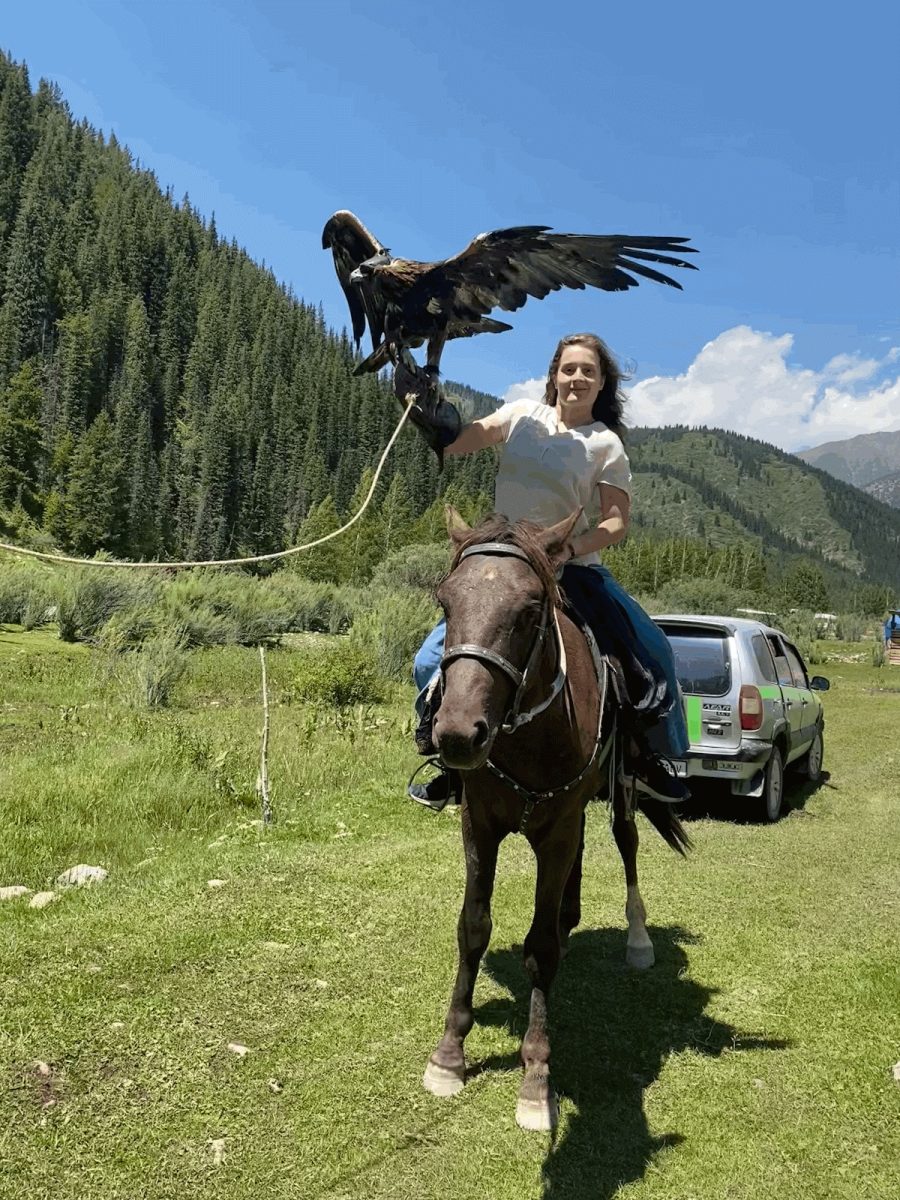
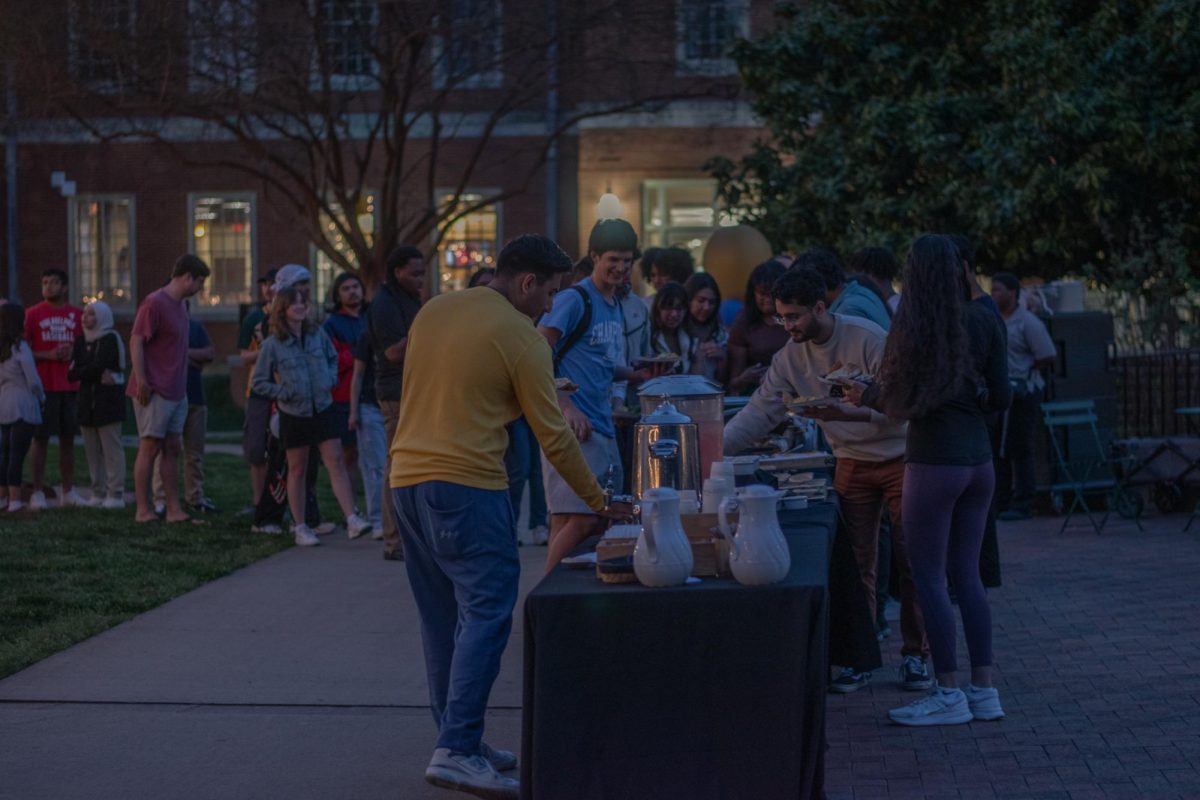
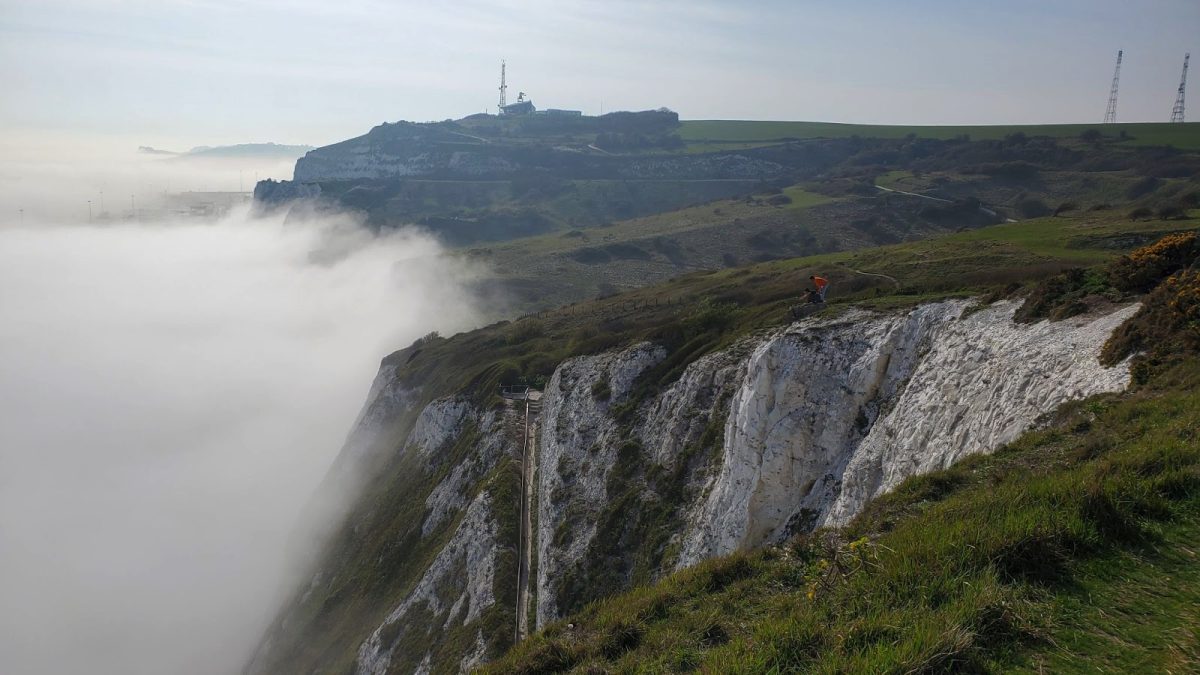
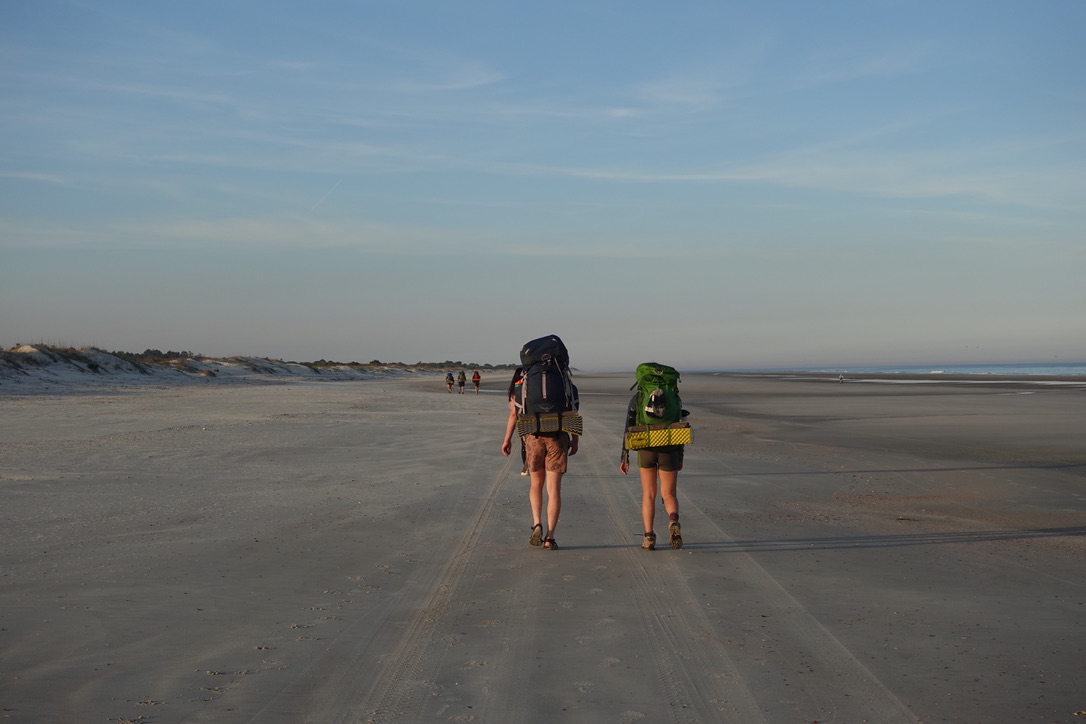
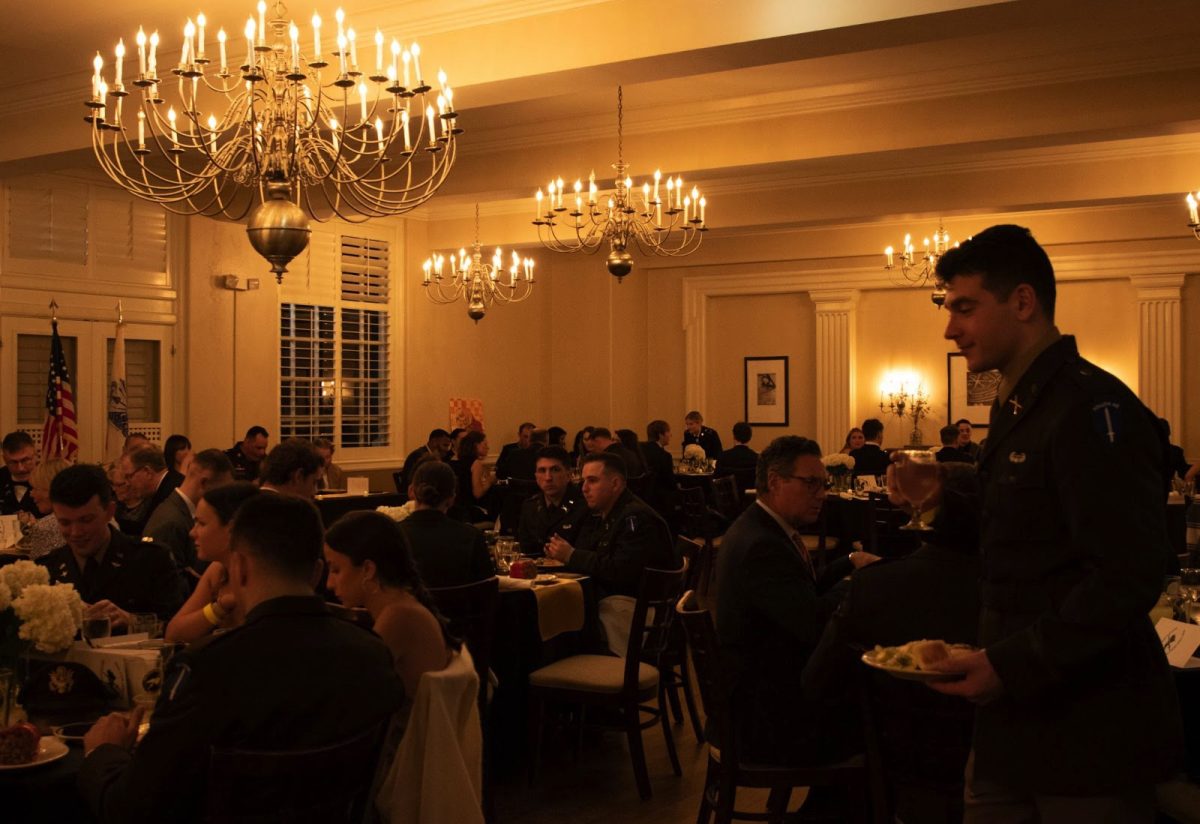
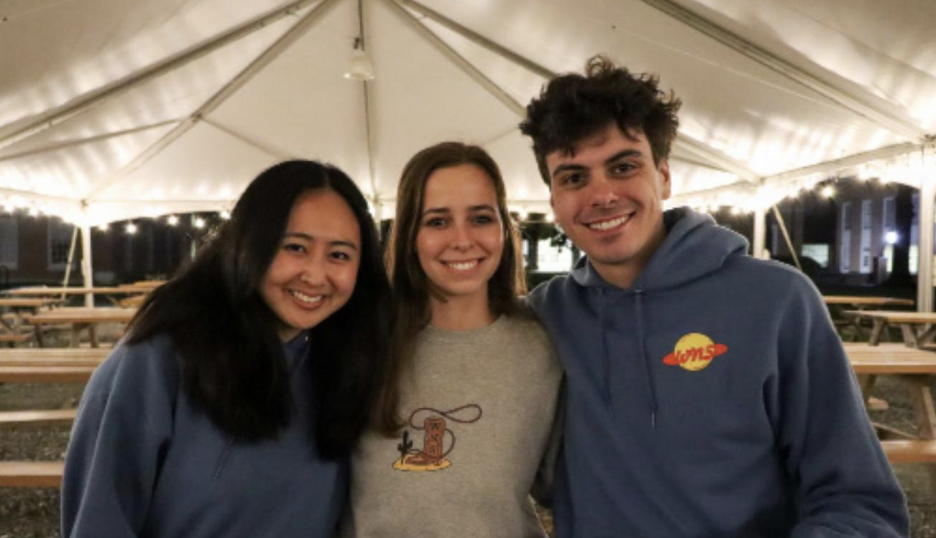
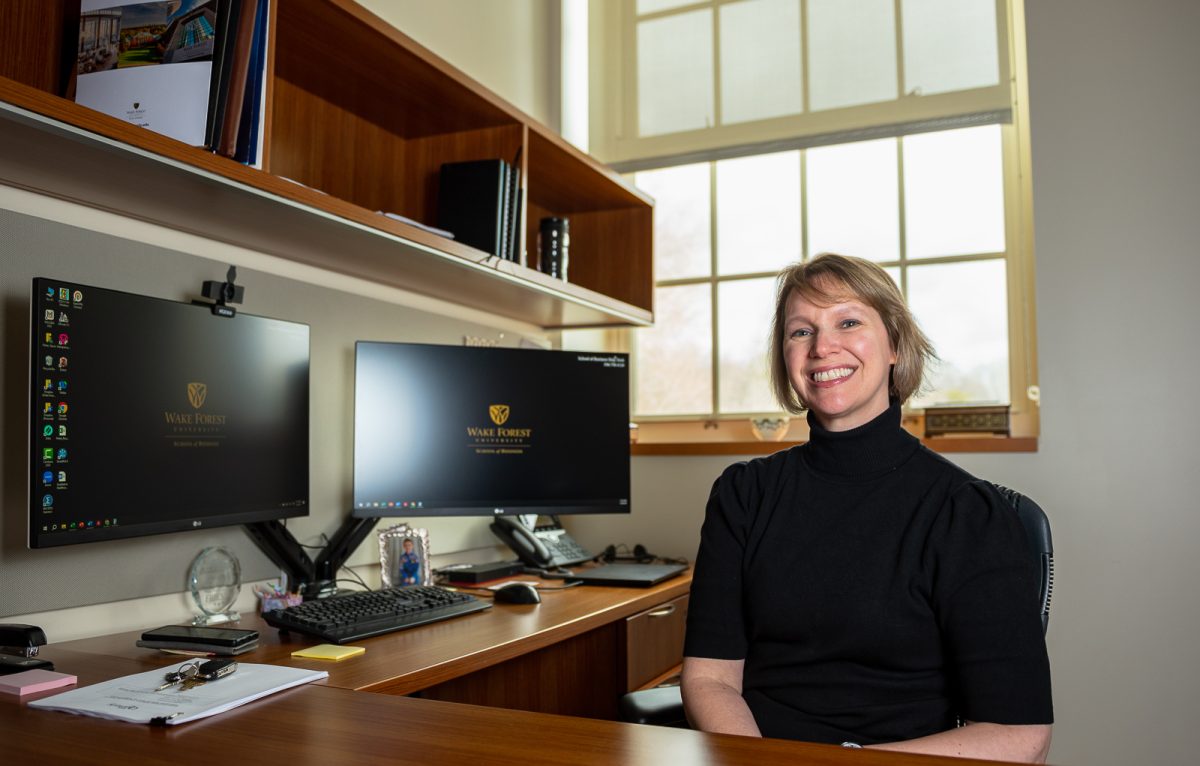
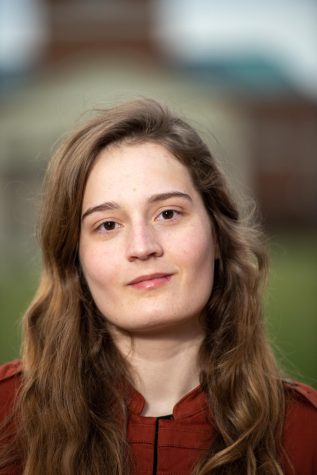
David Weyler • Jan 27, 2024 at 8:05 am
What a wonderfully written experience, I felt like I could see through your eyes. Having travelled myself and mostly off the beaten path ( although maybe not that far off the path)and having stay with host families several times, it was easy to relate to such an entertaining and well written article.
oneta manuel • Jan 26, 2024 at 9:09 pm
Well written. I wanted to keep reading and could visualize the area. Keep making wonderful memories.
Jenny Romine • Jan 26, 2024 at 9:23 am
Wow! What a wonderful adventure!! And the opportunity to learn and see and appreciate a country no one has ever heard of. And you are a great writer. I could almost see all the things you wrote about. Can’t wait to hear more about your next adventures. And how things will be when you someday go back.